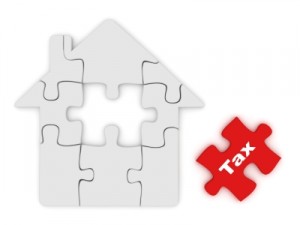
A debt relief bill from 2007 is in danger of expiring, and it could leave homeowners on the line for thousands in taxes.
A column recently published in the Chicago Tribune has called attention to one of the more understated – and successful – tax provisions passed by Congress in the wake of the housing bust, and the dangers posed by its Dec. 31, 2012 expiration.
Distributed by United Feature Syndicate, the column’s author, Lew Sichelman, writes about the Mortgage Forgiveness Debt Relief Act of 2007, a measure that allows homeowners to exclude forgiven debt from their tax filings with the IRS.
For instance, Sichelman writes that if a homeowner owes $250,000 on a house, and $50,000 of that debt is forgiven in a refinancing, short sale, or other transaction, that $50,000 would normally be considered income, and the government would tax you for it by any percentage from federal and state taxes (a 36 percent tax would mean $18,000 on that forgiveness). The Debt Relief Act, though, allows that homeowner to exclude such transactions from taxes on his or her primary residence.
Technically, the Debt Relief Act does not expire for another 11 months, but as Sichelman points out, 11 months seems like a coffee break compared to the current timetables on foreclosures and short sales. As of October, LPS averaged foreclosures at 674 days to finish processing, with the timelines in New York, New Jersey and Florida being particularly elongated at 800 to 1,000 days – or, two to three years.
“[T]he timelines on debt forgiveness decisions by lenders are absolutely horrendous,” Sichelman writes, adding that the state with the shortest foreclosure timeline is Minnesota at 463 days; so even the speediest state renders the Debt Relief Act, in its expiration-bound form, as basically useless.
The story is not much prettier for short sales and refinancings. A survey from early 2011 by Equi-Trax Asset Solutions that Sichelman cites reported that it can take four to nine months for banks to sign off on short sale deals, and 18 percent of the 600 agents polled in th survey said a three-month short sale was possible under only the most ideal of circumstances. And for refinancings involving principal amnesty, Sichelman cites data from Carrington Mortgage Services, where a “short-refi” takes 45 to 60 days.
Though he does not offer any quick solutions, Sichelman’s point is clear: the expiration of the Debt Relief Act, coupled with the tangled financial mortgage services environment, could spell relatively immediate trouble for homeowners.